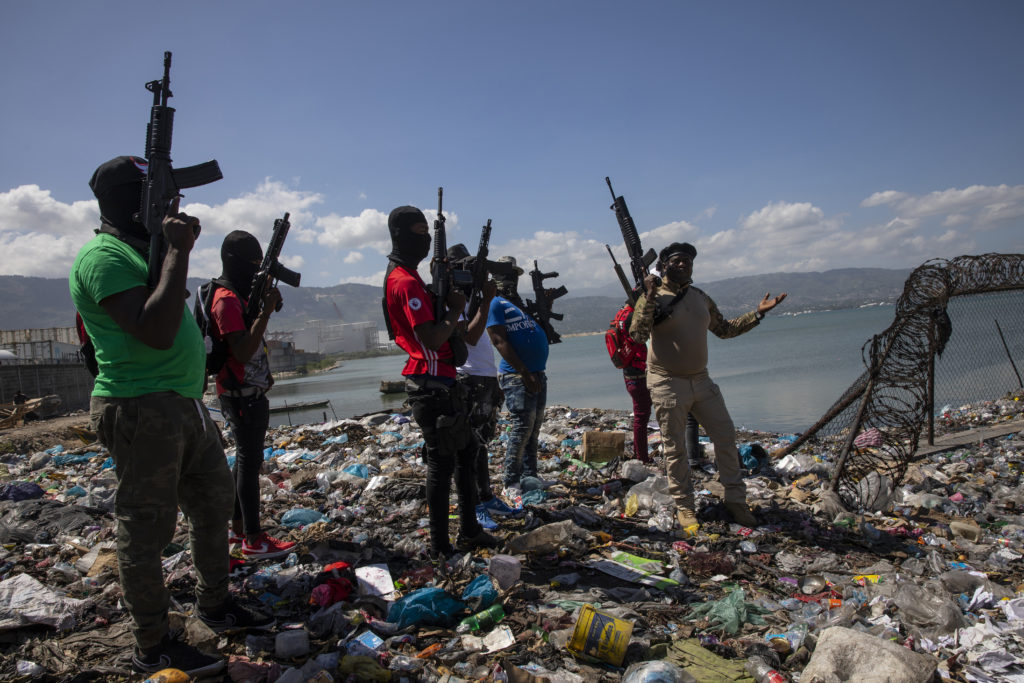A powerful and feared gang leader in Haiti who was once a math and physics teacher was killed in a neighborhood within a sprawling seaside slum that he controlled for years, local media reported on Monday.
The death of Iskar Andrice, who also has been identified as Iscar Andris, raised concerns that already rampant gang violence could spike further in the vacuum his death created.
Andrice ruled the Belekou community within the Cite Soleil slum where he died, former mayor Esaïe Beauchard told Radio Galaxie FM.
“It’s regrettable that this guy had to be involved in gang activity, because he’s a very intelligent man,” Beauchard said.
It wasn’t immediately clear what day Andrice died.
Jean-Frédérique Islain, the current mayor of Cite Soleil, declined to comment when contacted by The Associated Press.
The gang that Andrice led was involved in murder, robbery, extortion, rape and the hijacking of goods and trucks, according to a recent U.N. report. He later joined forces with renowned gang leader Jimmy Chérizier, known as Barbecue, who formed the “G9 Family and Allies” alliance, Haiti’s biggest and most powerful gang group.
Media interviews granted by Chérizier first had to be approved by Andrice.
The U.N. said that Andrice, like other gang leaders, created a social foundation in 2015 known as the Siloé Foundation to win over the community he controlled and present a positive image of himself.
Andrice and other gang leaders were accused of leading several deadly raids on Haitian neighborhoods that targeted civilians, according to a report by the nonprofit National Human Rights Defense Network in Haiti.
They also were accused of paralyzing operations at a main fuel terminal in the capital, Port-au-Prince, last year, crippling the country and forcing Haitian Prime Minister Ariel Henry to make his first request for the urgent deployment of a foreign armed force.
 FILE - Flanked by members of the G9 gang coalition, leader Jimmy Cherizier, aka Barbecue, right, talks to reporters near the perimeter wall that encloses Terminal Varreux, the port owned by the Mevs family, in Port-au-Prince, Haiti, Oct. 6, 2021. The U.N. Security Council unanimously adopted a resolution Friday, Oct. 21, 2022 demanding an immediate end to violence and criminal activity in Haiti and imposing sanctions on Barbecue, a former police officer. (AP Photo/Rodrigo Abd, File)
FILE - Flanked by members of the G9 gang coalition, leader Jimmy Cherizier, aka Barbecue, right, talks to reporters near the perimeter wall that encloses Terminal Varreux, the port owned by the Mevs family, in Port-au-Prince, Haiti, Oct. 6, 2021. The U.N. Security Council unanimously adopted a resolution Friday, Oct. 21, 2022 demanding an immediate end to violence and criminal activity in Haiti and imposing sanctions on Barbecue, a former police officer. (AP Photo/Rodrigo Abd, File)
